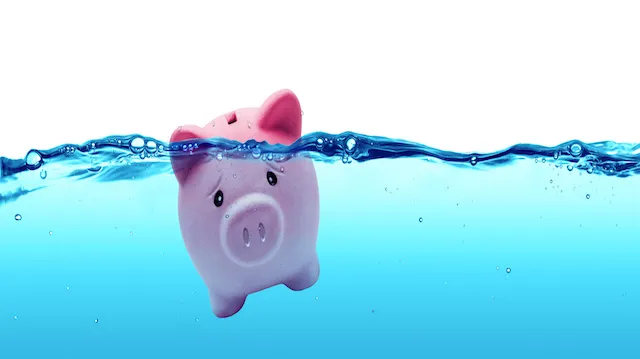Nearly everything in our society tempts us to live our lives in debt. From alluring cash-back credit cards, down payment-free cars and “no payment for 12 months” furniture, we are immersed in a worry about it later financial culture.
Then of course, there are debts that are seemingly inevitable: mortgages, student loans, medical bills and taxes. These are often debts courtesy of life’s necessities, but that doesn’t make them any easier to pay off. Whatever the case, be it impulsive purchases or a product of the normal cost of living, most Americans live with a staggering amount of debt.
According to the Federal Reserve, America’s outstanding credit card debt was $882 billion last year. Even more shocking, student loan debt is sitting at $1.3 trillion, mortgage debt at $8.1 trillion and auto loans are just shy of being in the trillions at $943 billion. Yes, it’s safe to say that most Americans are living well beyond their means.
So what can we do to start digging ourselves out of this financial hole? Here are six steps to start getting rid of your debt today.
Know Where You Stand
All too often, debt becomes so overwhelming that we just start ignoring it. We receive monthly bills but never really know how much debt we are paying off. The first step to getting out of debt is to understand just how much money you are spending on bills each month. It is important to be honest with yourself. Write down exactly how much each monthly payment is, interest included, so you have a good idea of what kind of numbers you’re working with.
Prioritize Payments
Paying the minimum on all outstanding balances each month is a good way to chip away at debt, and it also helps build your credit. Still, you should choose one or two of your highest-interest debts and pay off as much you can from those bills each month to avoid the added interest cost. With high-interest loans, often people only pay the interest each month and barely touch the principal payment.
Readjust Your Budget
It is not uncommon to make debt payments a low priority in your budget. In reality, debt should be the first thing you pay off, after you’ve paid all necessary living expenses. Add up all of your expenses, including more frivolous buys such as dating and eating out, and see how much you have left over to spend on debt. If the amount is less than your debt payment targets, you may need a tighter budget to pay it off.
Consolidate Your Debt
When we receive a plethora of monthly bills for various outstanding balances, it’s easy to become overwhelmed. Consolidating your debt is an easy way to make one single monthly payment without the hassle of having to keep track of what payment is due when. Often, this single payment is lower than paying debts separately.
Negotiate With Creditors
By speaking with a customer service representative, you often can improve the terms of on your debts or even get your interest rate lowered. Moving debt into a lower interest credit card (cards featuring zero interest for six to 12 months are common) is another way to get ahead of the debt game. Just be sure to keep credit card balances below 35% of your maximum in order to avoid hurting your credit score.
Stick To Your Plan
Once you have examined your debt, prioritized your payments and readjusted your budget, it is important to stick to your plan. Try your best to meet your repayment goals each month, even if it means skimping on the small luxuries you can afford. Check up on your finances every few months to make sure you are on track. Once you begin to see the debt slowly disappear, you will be motivated to keep it up.
What tricks have you used to get out of debt?
—Stephanie Catudal
Stephanie Catudal is a mother, writer, hiker and outdoor enthusiast. She can often be found exploring the Ponderosa pine forests of Northern Arizona, or splashing in the cool waters of Sedona’s red rock canyons with her husband and two daughters. Steph is a holistic health enthusiast and finds strength in her personal pursuit of fitness and wellness. She has degrees in Media, Peace and Conflict studies and is passionate about building peace both abroad and within her community.
Sources:
https://www.credit.com/debt/5-steps-to-reduce-your-debt-diy-debt-reduction
https://www.becomingminimalist.com/33-proven-ways-to-reduce-personal-debt
https://www.wellsfargo.com/financial-education/basic-finances/manage-money/cashflow-savings/pay-down-debt
http://www.creditcards.com/credit-card-news/help/8-steps-cut-credit-card-debt-6000.php
http://www.fool.com/investing/general/2015/01/18/the-average-american-has-this-much-debt-how-do-you.aspx

